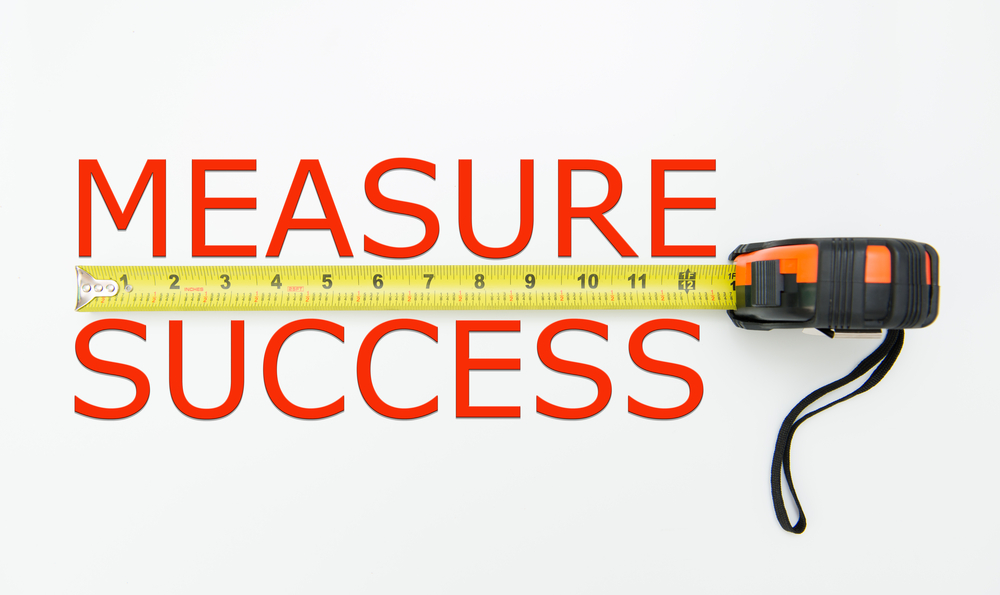Tell me if this sounds familiar. Organization A decides to adopt Agile methods and begin the lengthy and possibly (probably) expensive transformation process. In doing so they engage in lots of training, read books, attend conferences and listen to webinars. They engage a consulting organization to help coach the change. But, after a period of time has gone by someone brilliantly asks,
“So, are we better for having done this?” Great question.
Many companies have no idea whether or not these Agile methods are actually helping the bottom line and the way we deliver overall. We figure that if teams are sprinting and doing retrospectives we must be better. If teams are co-located and I see sticky notes on the wall, we must be better.
Don’t get me wrong, those tactics will help facilitate improvement, but at the end of the day we need to understand where we were and watch to see how we have moved the needle in order to quantify the improvements. Some Agile “purists” will say the only true measure is working software and everything else is fluff. I understand the argument but I’ve seen teams put out tons of working software fast but the customer hated it and it was not the most important thing to do currently. Hence, “working software” should probably not be the primary measure of progress; regardless of what the manifesto says.
So, if typical measurements feel like fluff and cranking out working software isn’t it, then how do we know if Agile is helping?
Two words…Business – Value
It’s a little ironic to me that we decide to adopt Agile methods because we are generally pressured to deliver value to the business faster and yet, for many companies, understanding what true Business Value is escapes them. From an Agile coaching perspective, I would say only ten percent of the organizations I encounter truly have a good grasp of what the term “Business Value” means to them and can track that variable.
For example, I can continually deliver “working software” but many organizations fail to understand whether this is delivering true value to the business and its customers. To be able to measure Business Value a company must understand value outside of the simple dollars and cents. It should understand the long reaching impact of compliance requirements, innovation, simplifying our internal structure and policies to streamline ourselves in the best interests of our customers (just as a few examples). These items fall under Agile adjustments that are hand in hand with Business Process Management that delivers value. In many cases, we will also find they are the most impactful and ultimately change how we “deliver working software”.
Another, perhaps more profound, evolution is taking place in the Agile world. Agile methods are being utilized outside of technical teams and being adopted in purely business terms. It’s what I call Holistic Agile. Instead of treating symptoms, Agile is being used to treat the whole of the body. Instead of it being an “IT” thing, it becomes “how we simply do business day to day.” This means we are required to have a strong understanding of what Business Value is on many levels.
The point is that understanding, quantifying, measuring and seeing the increase in value delivered is the only true measure of progress. You can have leading measurements that help you understand value better. But the single area the teams, PMO, functional managers and executive leadership should all be watching for is value delivered.
Once that is well understood the concept of continuous delivery changes. It’s not just that we want to “continuously deliver”, it’s that we want to continuously deliver value. We want to decrease the time it takes to deliver that value. We want to ensure high quality value. Various other measurements fall in behind as needed.
Adopting an Agile framework in itself will only move the needle so far. In some cases, it may only muddy the waters in an already murky corporate pond. The first step of any good Agile adoptiontransformation should be spending time re-evaluating what we consider business value. This will ultimately determine what the teams are working on and how they are measured for success. It will also determine whether or not we push through various product deliveries (because they had funding) or we cut bait due to lack of business value seen.
Take the time now to dive deeper into what Business Value truly is for your organization, line that up with Agile delivery methods and create transparency to the results. It really is the primary measure of progress.

















